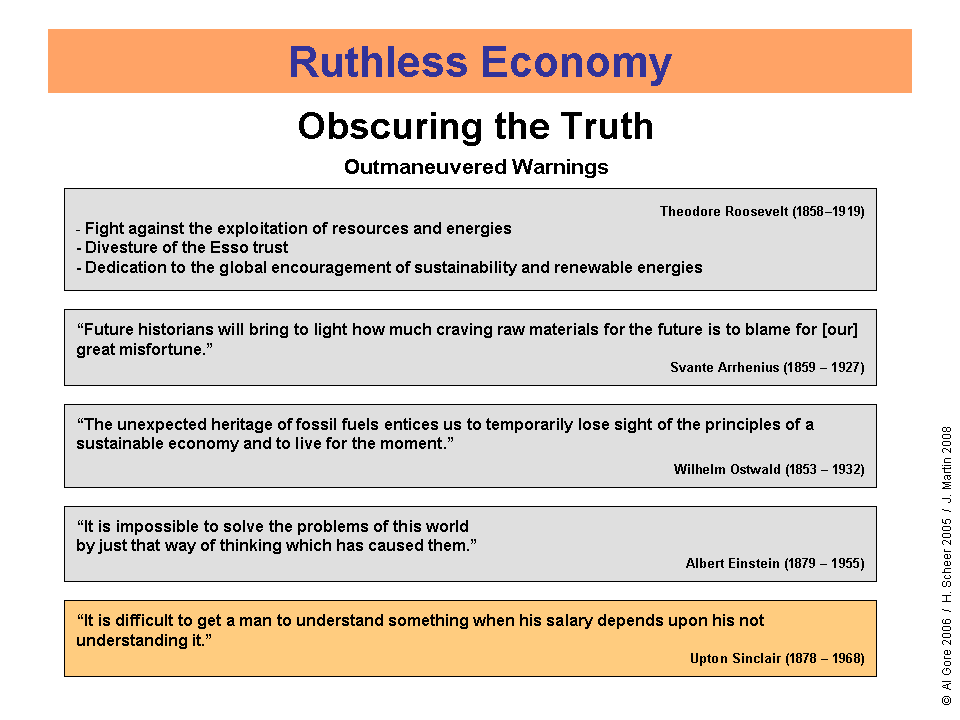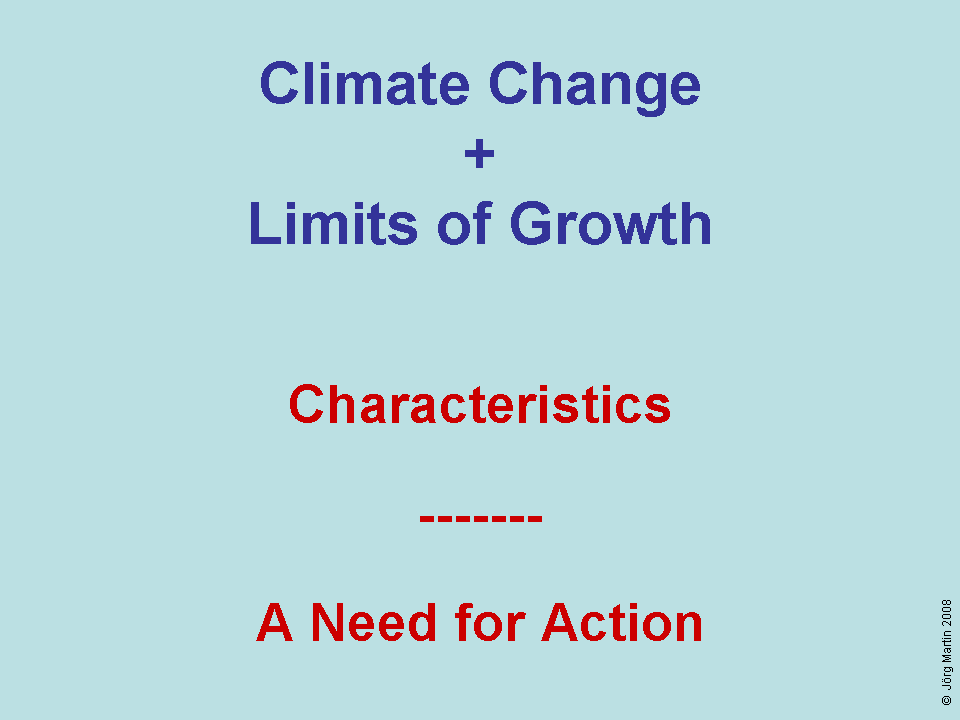
| Political | |
| • | Lack of Design Loads |
| • | Need for Security |
| • | Need for Action |
| Individual | |
| • | Possible Action |
| • | Need for Action |
| Energy Sector | |
| • | Money-burning System |
| • | Fossil-nuclear Energies |
| • | Renewable Energies |
| • | Economic Viability |
| Economy | |
| • | Ignored Warnings |
| • | Criminal Methods |
Outmaneuvered Warnings
For over 100 years, noted scientists and politicians have opposed the consequences of the irresponsible use of fossil resources[62].
Near the end of the 19th century, the American president at the time, Theodore Roosevelt (1858-1919), recognized the dangers of an economy without obligatory sustainability. He fought against the exploitation of raw materials and against the waste of energy. Through the divesture of the Esso trust, he prevented a worldwide monopoly under the Esso company (Exxon) in the field of oil and gas supply.
Roosevelt pursued the goal of establishing global principles for sustainability in the use of raw materials and an obligatory supply structure using renewable energies. A worldwide conference planned by him on this topic, however, never took place.
His contemporary, the Swedish chemist Svante Arrhenius (1859 - 1927), foresaw at that time: "Future historians will bring to light how much craving raw materials for the future is to blame for our great misfortune."
The German physicist and chemist Wilhelm Ostwald (1853 - 1932) gave a similar warning: "The unexpected heritage of fossil fuels entices us to temporarily lose sight of the principles of a sustainable economy and to live for the moment."
The exploitation of raw materials and waste of energy has, in the meantime, become a global problem. Albert Einstein (1879 - 1955) sums up the matter in a nutshell with his quote: "It is impossible to solve the problems of this world by just that way of thinking which has caused them."
Thus it can be assumed with certainty that the economic branches that earn large profits from raw materials exploitation and energy waste will deliberately obstruct this change in thinking. Upton Sinclair (1878 - 1968) noted here: "It is difficult to get a man to understand something when his salary depends upon his not understanding it."[63]
The lobby for raw material supplies and fossil energy sources is thus using all available means against efforts that could reduce profits made from the sale of these finite resources. The fight against climate change and against the support of the Club of Rome's forecast will face massive resistance from this side.
With this, the lobby brings the collapse of the national economy and thus their own downfall.
| Associated Slide |
 |
| Illustrating Slides |
 |
| Slide 1 |